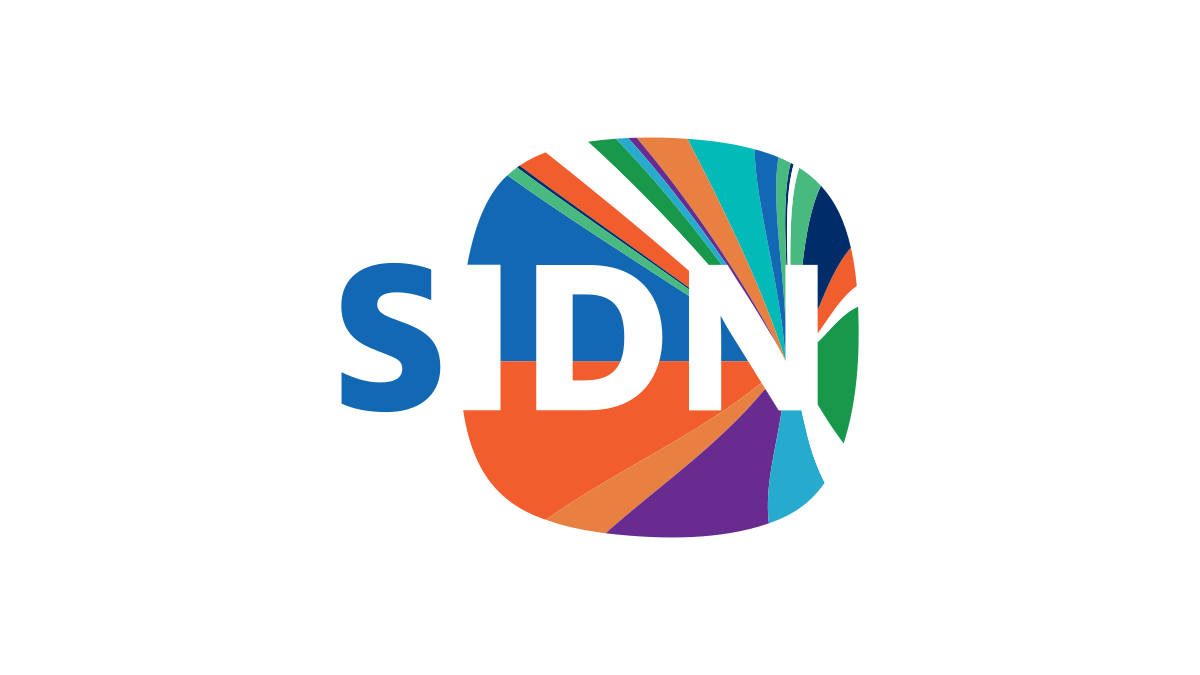On Thursday 17 November, the ECP Annual Congress was held at the Fokker Terminal in The Hague. We've supported the Congress for several years now, because we see it as a great opportunity to showcase our work.
Fist copy of NL Digitaal presented
The Congress opened at 10am with a plenary session, during which Herbert Blankesteijn presented the first copy of NL Digitaal to a number of young people who had helped with its development. NL Digitaal is an attractive book packed with information about everything that senior school pupils need to know about bits and bytes. It's intended to help them learn how to explore the digital world safely, confidently and freely. We contributed to the book's contents and sponsored its development.
Trends in internet use
At 11:15, participants dispersed to a number of break-out sessions. In one of the sessions, our marketing manager Michiel Henneke presented the results of the fourth survey of trends in internet use. One of the findings was that we are spending more time on line with our smartphones. There's been a considerable increase in smartphone-based internet use since 2014, when our previous survey was done. Two years ago, the average was twenty-nine hours a month. Now we spend an average of forty hours a month on line with our smartphones. The increase mainly involves people making more intensive use of a smaller number of apps. That trend is apparent in all age groups, from youngsters to over-65s. See the report for more details.
Big Data, Big Deal!
At 12:15, our colleagues from SIDN Fund led a session, during which people from some of the fascinating projects supported by the Fund talked about their work:
Dubious Devices: a vision of the Internet of Things, in which connected devices aren't just smart, but are also impudent and devious.
Ethics for people and machines: taking ethical issues into account from an early stage of development.
Political profiling: how micro-targeting (the targeting of individual electors on the basis of data collected on line) may be used in Dutch parliamentary elections in 2017.
Network plaza
During the lunch break, participants had the opportunity to visit various demos in the network plaza. Together with the SIDN Fund, we put on three demos:
NetAidKit: a compact, portable router running open-source software, which you can use anywhere in the world to access the internet freely and securely.
White Spots: the White Spots app visualises the invisible electromagnetic cloud in which we live. In VR mode, the network scanner displays the invisible digital signals around us in real time and the app takes you on a journey to the end of the internet, illustrated with 360-degree stories.
Sense Math: Beeld door Geluid (Seeing with Sound) is a foundation that's developing an application to convert mathematical graphs into virtual reality audio, for use by pupils with impaired vision. Each part of the graph is assigned a sound on the basis of the 'sound language' developed for the project.
Dutch digital infrastructure very attractive to international companies
The Congress's third round of sessions started at 2pm. They included a presentation by Michiel Steltman of DINL (Digital Infrastructure Netherlands), setting out the results of a study into the value of the ICT sector to the Dutch economy. The study was carried out with assistance from SIDN.
Internet: a question of trust
A final round of sessions kicked off at 3pm. For the session 'Internet: a question of trust' SIDN Labs Manager Cristian Hesselman and his team described how we are contributing to the security and stability of the internet. Two projects were highlighted:
The privacy framework in practice: Jelte described the main lessons that we've learned by using our privacy framework, which could be useful to other organisations considering similar initiatives.
raud prevention: collaboration between Fraudehelpdesk and SIDN. Maarten Wullink from SIDN Labs and Elmer Lastdrager from Fraudehelpdesk explained how we are sharing data in order to enrich the information reaching investigative agencies and registrars and thus help the fight against internet fraud.
If you missed the Congress, you can download the presentations here.



